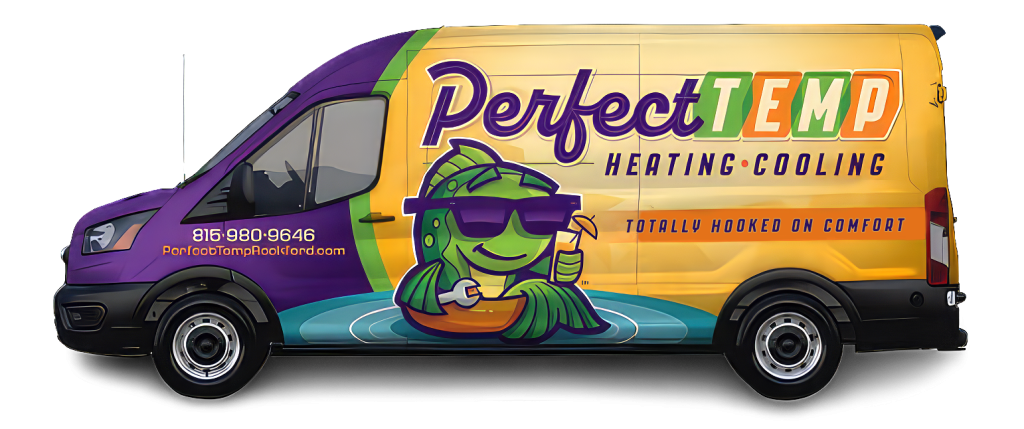Enjoy Clean Air and Maximum Efficiency
Are you tired of sky-high energy bills? Many homeowners are looking for ways to reduce expenses, and a simple solution might surprise you. This article explores why clean furnace filters save you money and enhance your home’s comfort.
Why Clean Furnace Filters Save You Money
Your furnace air filter safeguards your heating and air conditioning system. It traps dust, dirt, pet dander, and other airborne particles, preventing them from circulating. A dirty filter restricts airflow.
This restriction forces your furnace to work harder. In turn, this raises energy consumption and may affect indoor air quality.
Increased Energy Efficiency
A clogged furnace filter leads to higher energy consumption. The Department of Energy states that a clean filter can reduce energy consumption by up to 15% (learn more energy saving tips).
Heating and cooling account for about half of a typical household’s annual energy bill. With energy bills around $2,000 a year, a 15% reduction can yield significant savings. Keeping filters clean can lower energy consumption.
Prolonged HVAC System Lifespan
Dirty filters stress your furnace, causing premature wear and tear. Replacing an HVAC system costs between $4,000 and over $10,000.
Regular filter changes extend the lifespan of your furnace. This proactive maintenance also helps reduce costly repairs.
Improved Indoor Air Quality
Clean filters improve indoor air quality. They trap allergens and irritants that aggravate respiratory problems. A clean filter can significantly affect how well you breathe.
Think about all the tiny dust mites, pollen, and pet dander. Removing these contaminants creates a healthier living environment.
How Often Should You Change Your Furnace Filter?
Most experts recommend checking your furnace filter monthly. Change it if it looks dirty.
A general guideline is to replace the filter every three months (learn about changing furnace filters). Adjust this frequency based on pets, allergies, or a dusty environment.
Choosing the Right Filter
Filters have Minimum Efficiency Reporting Value (MERV) ratings. A higher MERV rating means better filtration. A filter with higher efficiency captures smaller particles.
However, higher MERV filters restrict airflow more. Choosing the correct filter involves balancing filtration with airflow.
| MERV Rating | Particle Size Filtered | Typical Use |
|---|---|---|
| 1-4 | Large particles (dust mites, pollen). | Basic household use. |
| 5-8 | Smaller particles (mold spores, pet dander). | Improved filtration for homes with pets or allergies. |
| 9-12 | Very small particles (smoke, smog). | Enhanced filtration for respiratory issues or air pollution concerns. |
| 13-16 | Even finer particles (bacteria, viruses). | Best filtration but may restrict airflow, designed for systems with variable blower speeds. |
Consult an HVAC professional for recommendations regarding filters. A properly sized filter ensures clean air and peak system performance.
FAQs about Why clean furnace filters save you money
What happens if you don’t clean your furnace filter?
A dirty filter restricts airflow, forcing your furnace to work harder and potentially overheat. This can cause higher energy bills and costly repairs. It also reduces indoor air quality.
Dirty filters contribute to system strain and premature wear. This often requires more frequent maintenance.
Does changing the air filter save money?
Yes, clean air filters reduce energy consumption and system strain. Reduced strain lowers electricity bills. Lower strain also limits HVAC system repairs, maximizing its longevity.
Neglecting filter changes eventually results in higher costs. This stems from increased energy consumption and the need for more frequent repairs.
Do more expensive furnace filters really make a difference?
Higher-priced filters often have higher MERV ratings, potentially restricting airflow. Consult an HVAC technician to ensure proper airflow (read about furnace filter tips).
A MERV 8 or 9 filter often provides excellent filtration without restricting airflow in homes with pets. Choosing the appropriate filter for your home involves a balance of effectiveness and efficiency.
Does changing the furnace filter save energy?
Yes, a clean filter promotes proper airflow. Better airflow increases furnace efficiency.
This reduces run time, lowering energy consumption and ultimately cutting utility costs.
Conclusion
Clean furnace air filters promote furnace efficiency and system health. This combination results in lower energy bills and better air quality.
Regular air filter changes maximize system longevity and comfort. Start saving money today while improving the air quality of your house (read about furnace filter changing).
It’s a simple step with big benefits. Grab a new filter, and take pride in improving your finances, health, and home comfort.
Now that you understand why clean furnace filters save you money, be sure to contact us today for more information or to schedule a free consultation.


